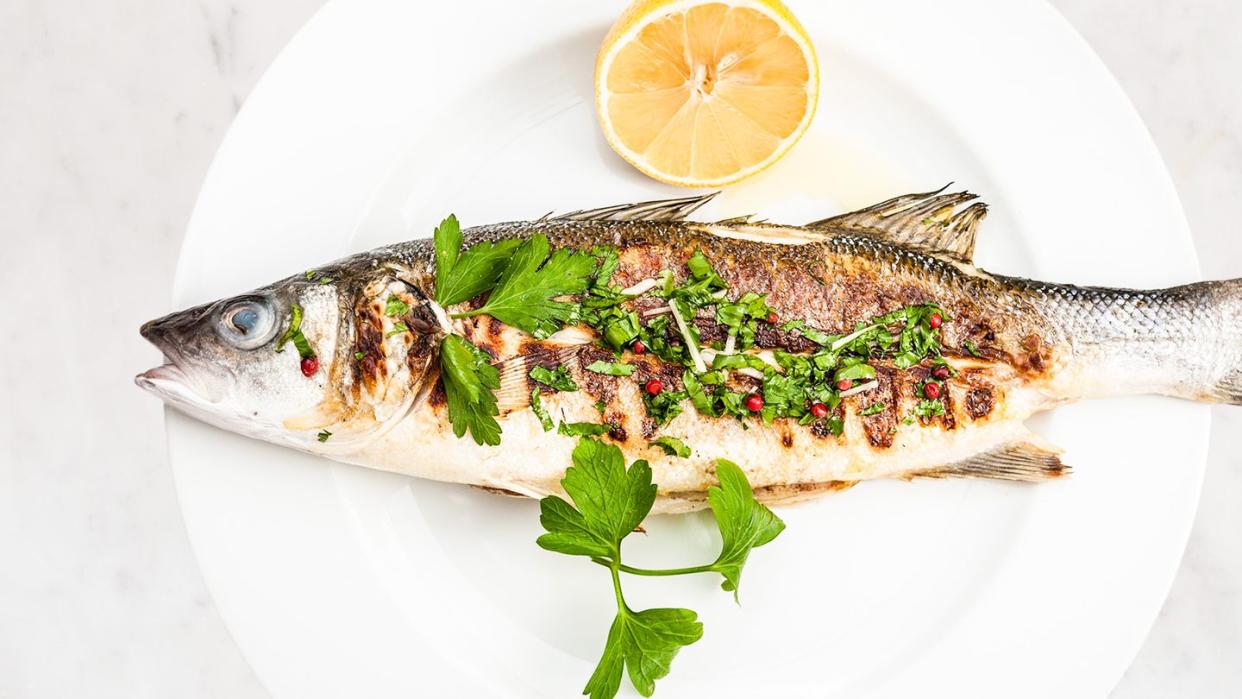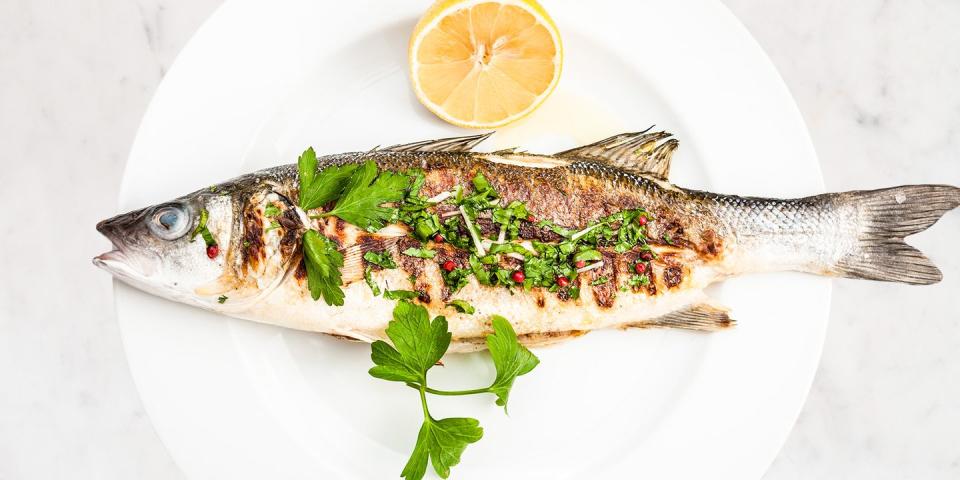Here's What Actually Happens When You Eat Fish Every Day

From light and mild tilapia and cod to flavorful salmon and tuna, there are many species of fish out there, each with its own flavor and nutrient profiles. Grilled, roasted, or sautéed, fish can make an easy protein-packed meal—just look at all these easy fish recipes.
But if you love seafood so much that you eat it a lot (and we mean a lot), you might be wondering just how healthy it is to eat fish every day. We consulted Rosemary Trout, program director of culinary arts and food science at Drexel University, to learn more about the role fish plays in our diets.
The Health Benefits Of Fish
Eating fish is considered a good way to get protein. "Overall, fish is a great source of complete protein which means it contains all of the essential amino acids that your body doesn’t synthesize," said Trout.
In addition to protein, she said that cold water fish (like salmon and tuna) are high in essential fatty acids, which the body doesn't make on its own. Fatty acids are known to support cardiovascular health. Fish are also a good source of choline and iodine, in addition to other nutrients, depending on the species.

How Much Fish Is Healthy To Eat?
According to the Dietary Guidelines for Americans, adults should be eating 5 to 7 ounces of protein-packed foods per day, depending on their caloric intake, including eight to 10 ounces of seafood per week. In a 2015 story on TODAY.com, professor and epidemiologist at Harvard T.H. Chan School of Public Health, said that daily fish consumption for most people is "fine."
Mercury is another concern when it comes to eating fish. "Bioaccumulation of methylmercury is a concern, because it is toxic, particularly to the central nervous system, and to babies in utero, which is why it’s recommended that women avoid eating large fish such as swordfish, tuna, and shark while pregnant and breastfeeding," said Trout.
The FDA recommends consuming fish that are lower in mercury, such as salmon, shrimp, black sea bass, cod, scallops, tilapia, lobster, and sardines. Here's a full list of fish that are low in mercury.
It's important to note that the size of fish can sometimes determine how much methylmercury it will have. "If larger fish eat smaller fish that already have methylmercury in their tissues, then the bioaccumulation happens, means larger fish may be more likely to have higher concentrations," she said.
Is It Better To Eat Wild Or Farmed Fish?
There's a lot of discourse about wild versus farmed fish, but Trout said both are good sources of protein. Due to different diets, the wild and farmed fish can have different flavor and nutritional profiles. "Farm raised fish that are fed unnatural carbohydrate diets have higher concentrations of saturated fats, compared to wild caught," she said.
How To Choose The Best Fish
"Buy fish from a store or fish monger you trust," she said. "Fish should always be very cold, and stored on self-draining ice at the store, or frozen solid." Trout uses tinned or canned fish to top salads, sandwiches, or pizza. "I love to quickly saute seasoned fish and serve with vegetables, or cold on top of a salad."
You Might Also Like

